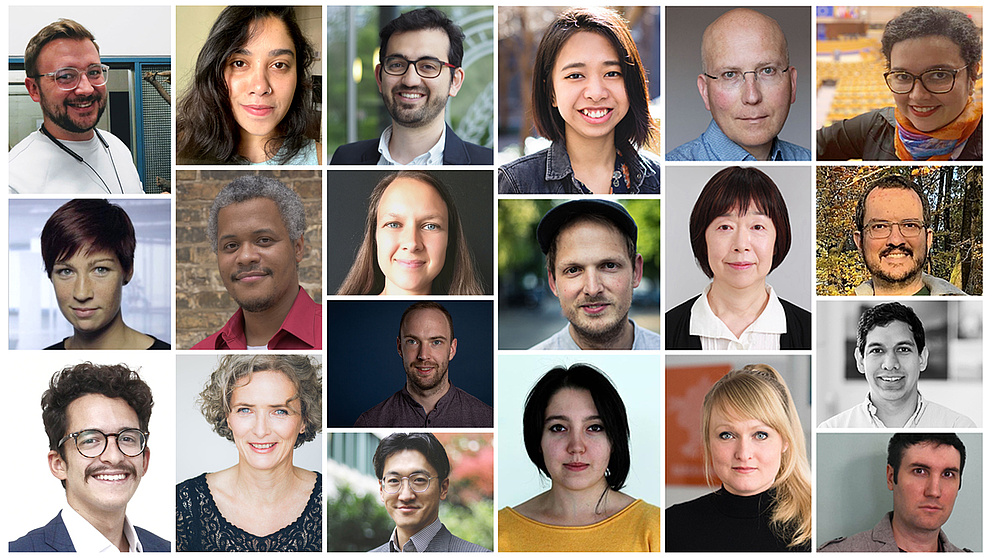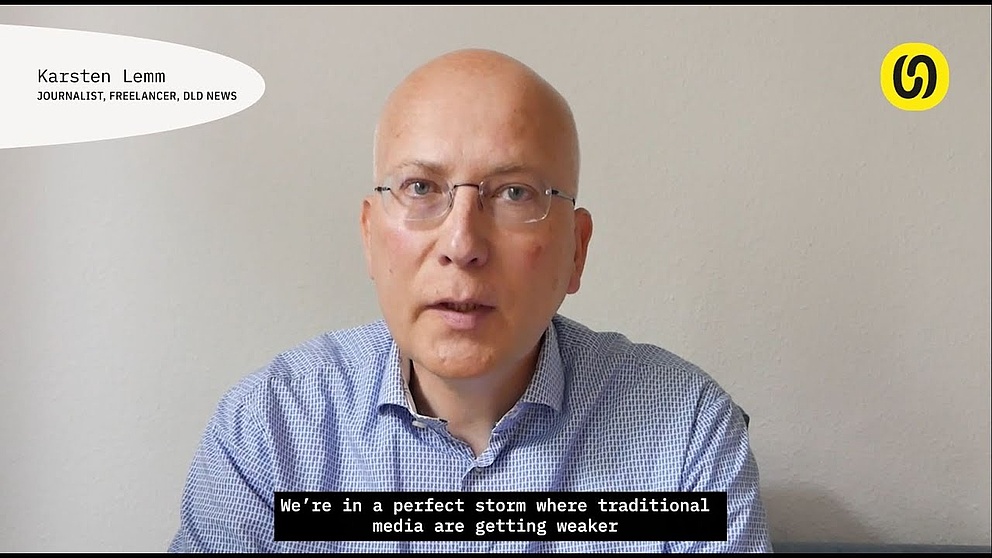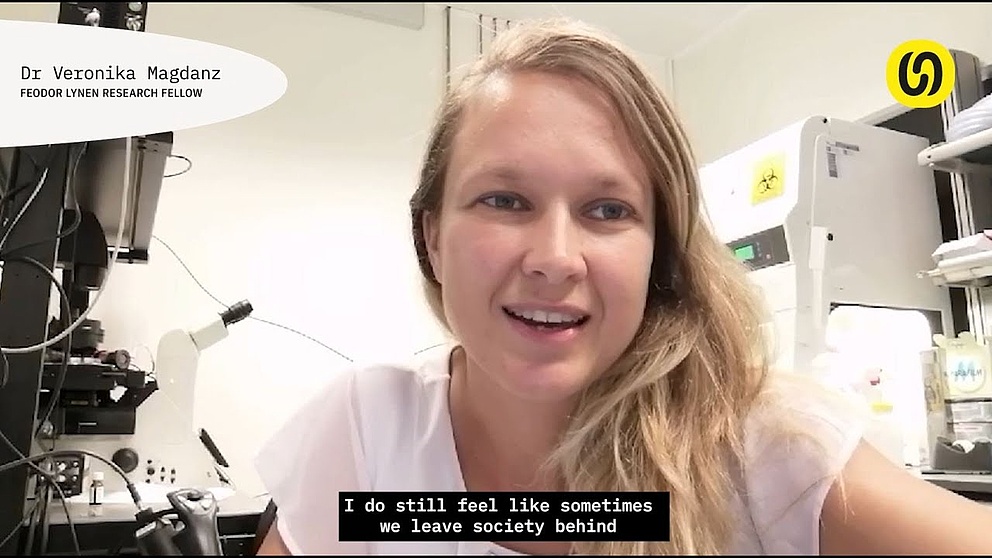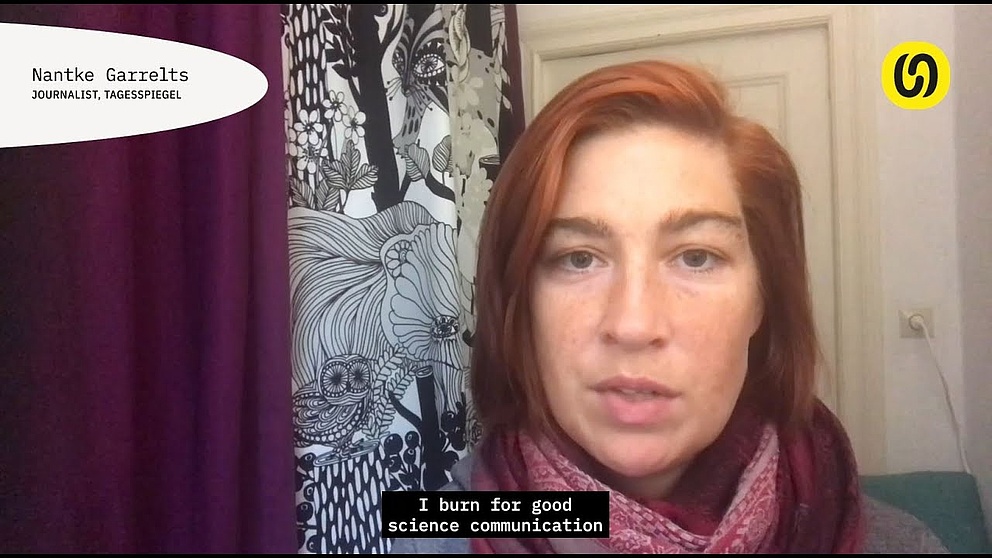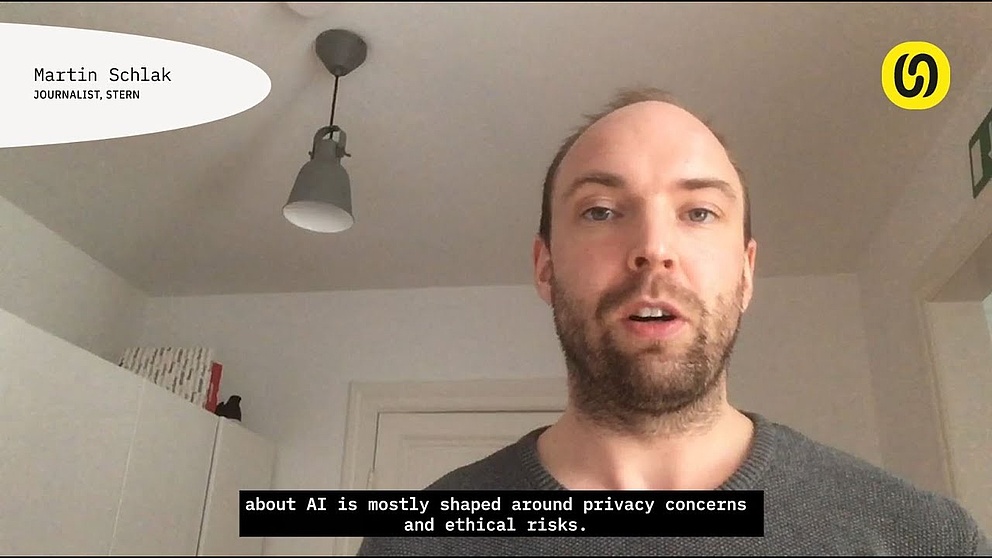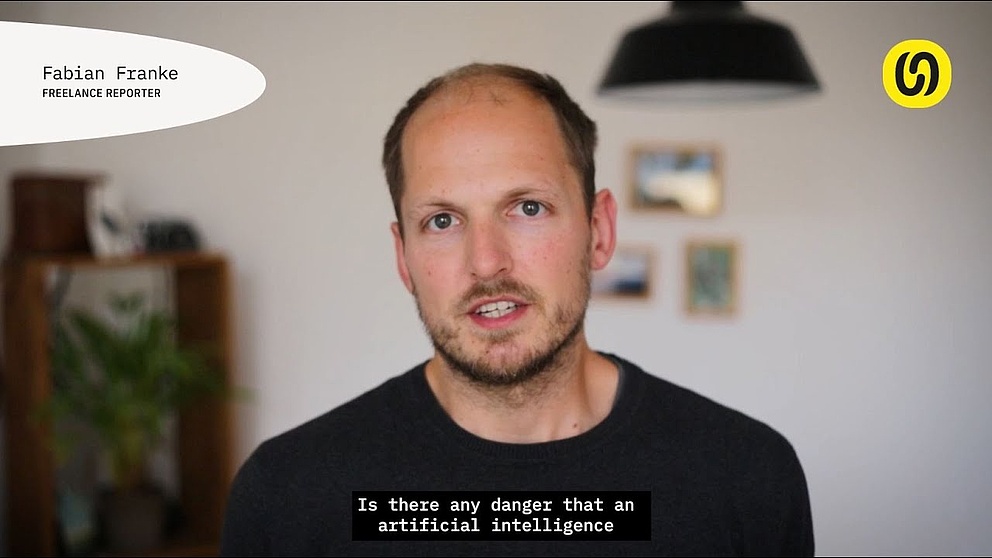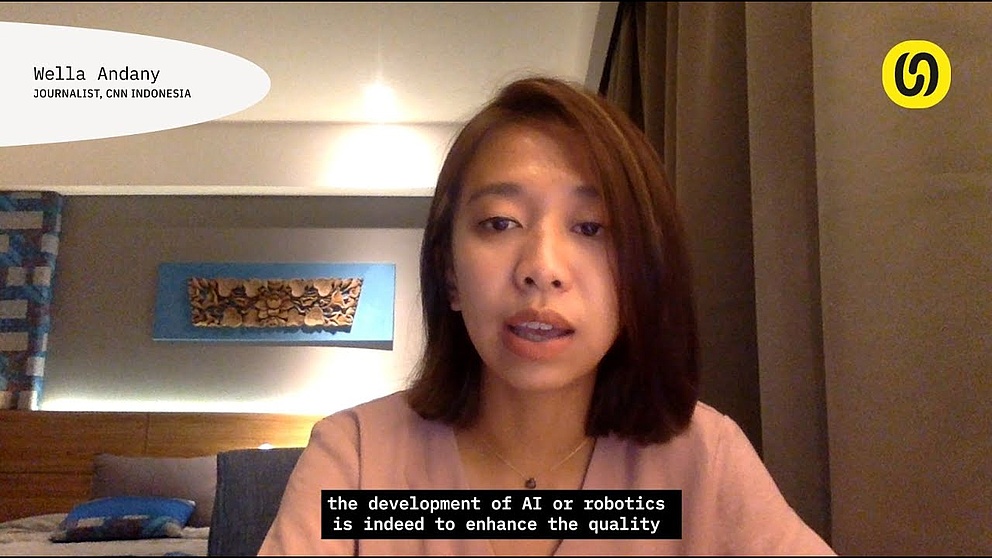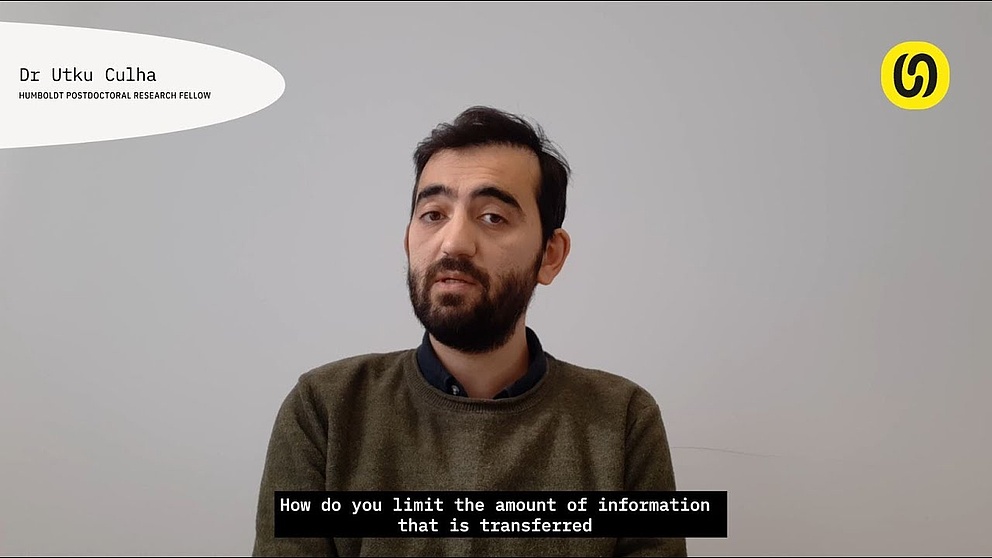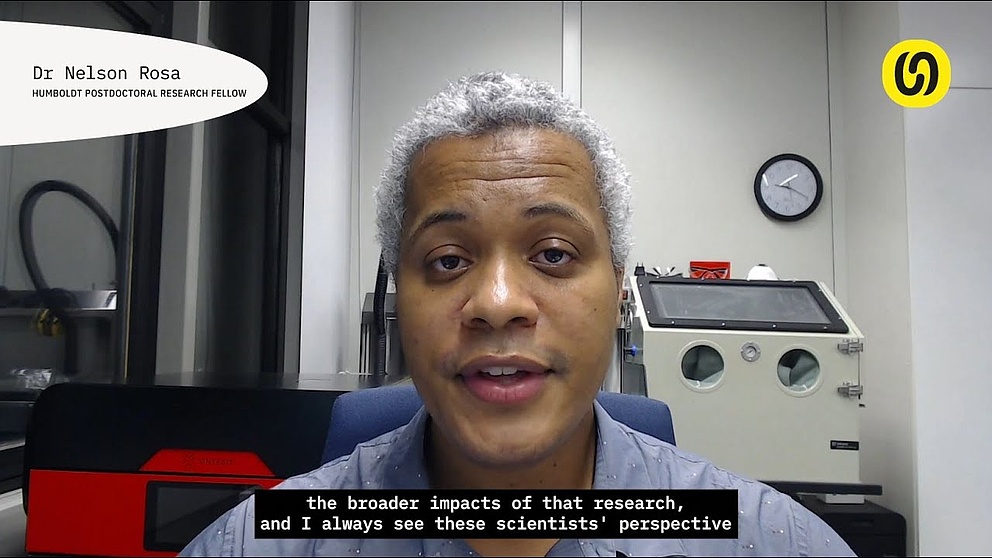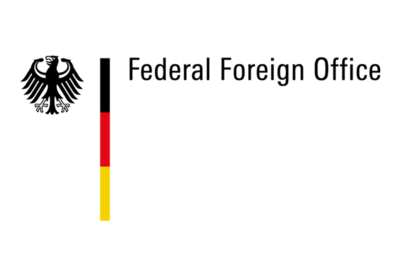Jump to the content
- {{#headlines}}
- {{title}} {{/headlines}}
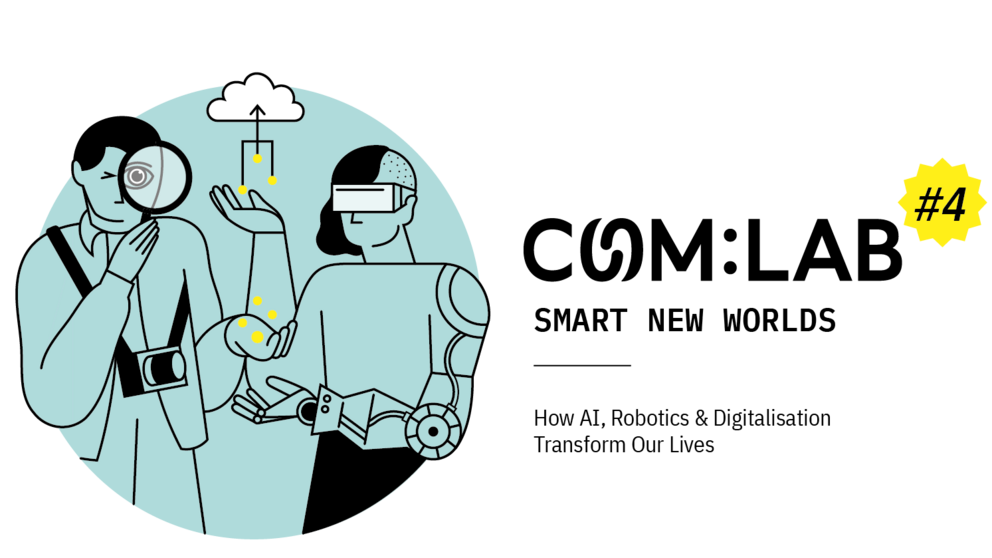

Humboldt Communication Lab
A conversation between science and the media: twice a year, ten Humboldt Fellows and ten early-career journalists get together with the aim of learning from one another.
ComLab#4
Artificial intelligence, robotics and new digital technologies are changing our lives. To which extent, benefit or at which cost is often hard to grasp for regulators, civil society and media. While transformative technologies hold great potential in medicine, industry, logistics and urban planning, hardly any other scientific fields spark so much speculation.
Together, journalists and researchers can point out research trends and development trajectories of AI, robotics and digital innovations, assess designs and possible applications, and discuss their ethical implications. And this is not an easy task since the expectations of future technologies are high. They should have an innovative and effective impact on society and equally benefit the common good. The social complexity raises important questions:
- Have diversity and participation been sufficiently considered in technological developments, especially in the areas of medicine, public health and connected living?
- What will digital human rights look like in the future?
- And how must the digital transformation be designed to counteract a monopolisation of knowledge and global inequality?
Speakers
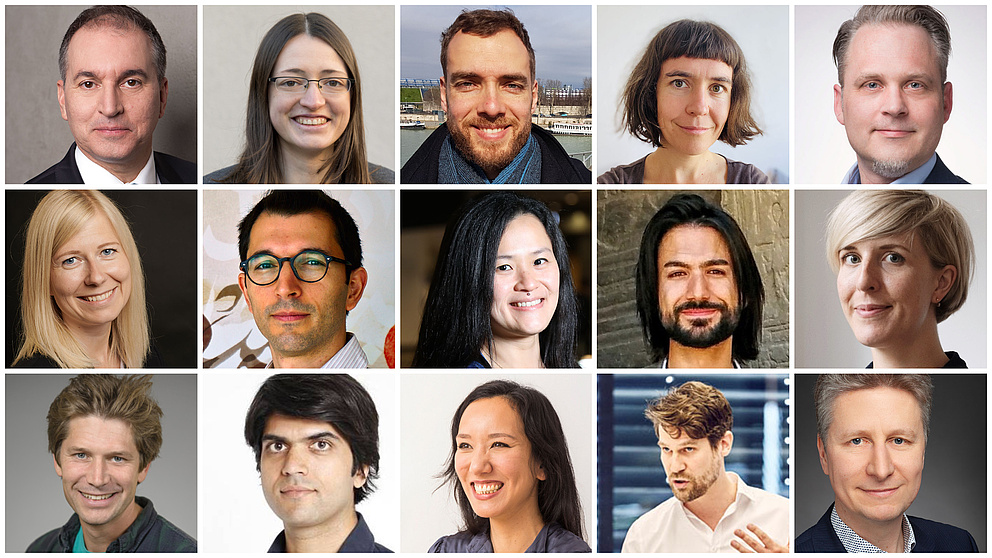
Prof Cristian Becker-Asano, Media University Stuttgart; Dr Annegret Burkert, Science Media Center Germany; Vito Cecere, Federal Foreign Office Germany; Dr Federico Cugurullo, Trinity College Dublin; Alok Jha, The Economist; Prof Kristian Kersting, TU Darmstadt; Dr Jens Radü, Der Spiegel, Prof Iyad Rahwan, Max Planck Institute for Human Development; Prof Joacim Rocklöv, Umeå University; Prof Flora Salim, RMIT University; Hazel Sheffield, farnearer.org; Albert Steinberger, Deutsche Welle; Rebecca Winkels, Wissenschaft im Dialog
Participants
Humboldtians: Dr Utku Culha, Prof Henrique Fernandes, Priya Goswami, Ivan Jimenez, Daphnee Iglesias, Dr Veronika Magdanz, José Renato de Pereira, Dr Nelson Rosa, Dr Robert Sidall, Teng Teng
IJP-Alumni/Journalists: Lamiya Adilgizi Guliyava, Wella Andany, Ivan Andrejic, Fabian Franke, Nantke Garrelts, Alexandra Eul, Karsten Lemm, Mikiko Miyakawa, Slivia Prahl, Martin Schlak
ComLab is where ideas grow wings. Great mentoring, lots of inspiration. Not to miss!
The winning projects
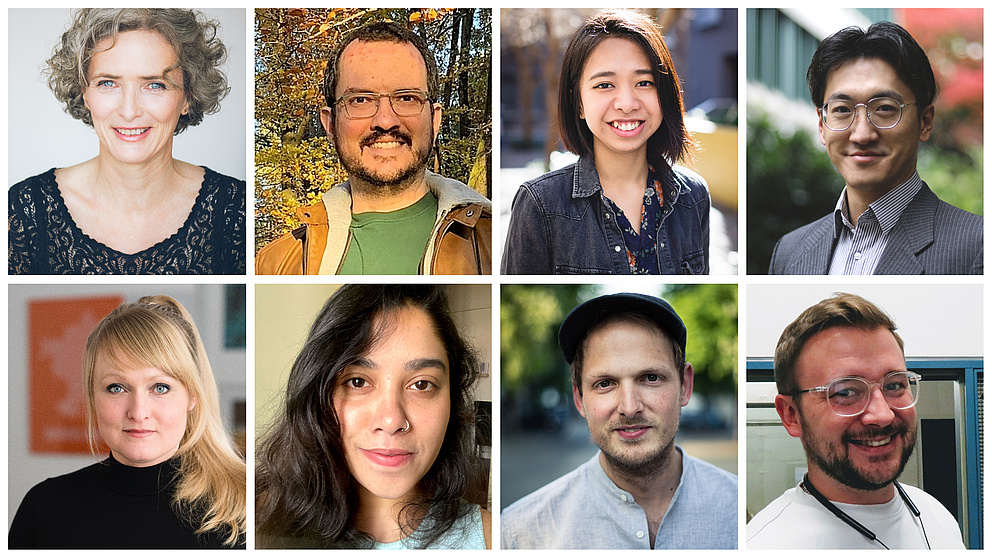
For the fourth time, the Humboldt Communication Lab (ComLab) brought together ten researchers and ten journalists to share ideas and opinions on current social developments. For ten weeks they worked together in tandems to develop best practices in science communication. The Alexander von Humboldt Foundation and the International Journalists' Programmes e. V. awarded four contributions with a cash prize of 500 euros each at the award ceremony on 4 March 2022. The prizes for the most convincing four submissions went to:

Press publications about ComLab#4
Silvia Plahl and Dr. Henrique Fernandes for their project “Breast Thermography – Can AI Help to Detect Cancer?”
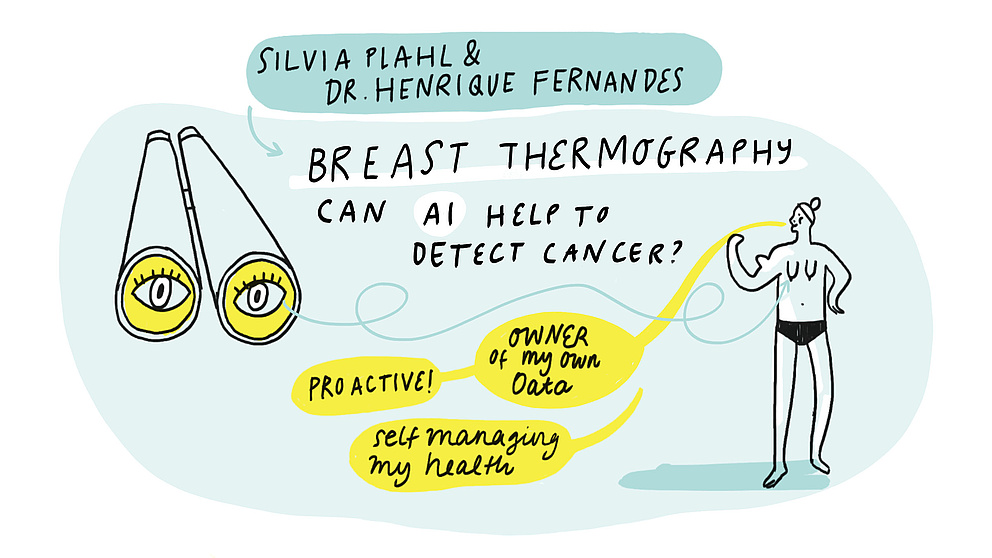
The thought of breast cancer alone can be terrifying. In 2020, 2.3 million women worldwide suffered from the disease. New AI-based software might pave the way to less invasive methods to detect breast cancer at an early stage. In her podcast and accompanying Insta posts, radio journalist Silvia Plahl presents the work of data scientist Henrique Fernandes, whose research on a new complementary screening method, the “Mamma Thermography”, may significantly improve the effectiveness of infrared analysis in the future. By talking to a female patient who underwent different treatments and connecting her perspective, Fernandes’s research and positions of other medical experts, Plahl weighs different experiences regarding AI-based technologies in medicine. The podcast communicates the potential and the limits of “Mamma Thermography” and offers a source for women to proactively seek help and increase patient literacy. Yet, the project goes beyond the digital realm: With his “Café com Bit” Henrique Fernandes invites women to talk about the advantages of “Mamma Thermography” in an informal discussion round that is also accessible via YouTube. An ambitious and promising project that shows how scientists can establish trust in new technologies by authentic and empathic communication strategies.
Wella Andany and Teng Teng for their multimedia feature „Competing Against Smart Machines”
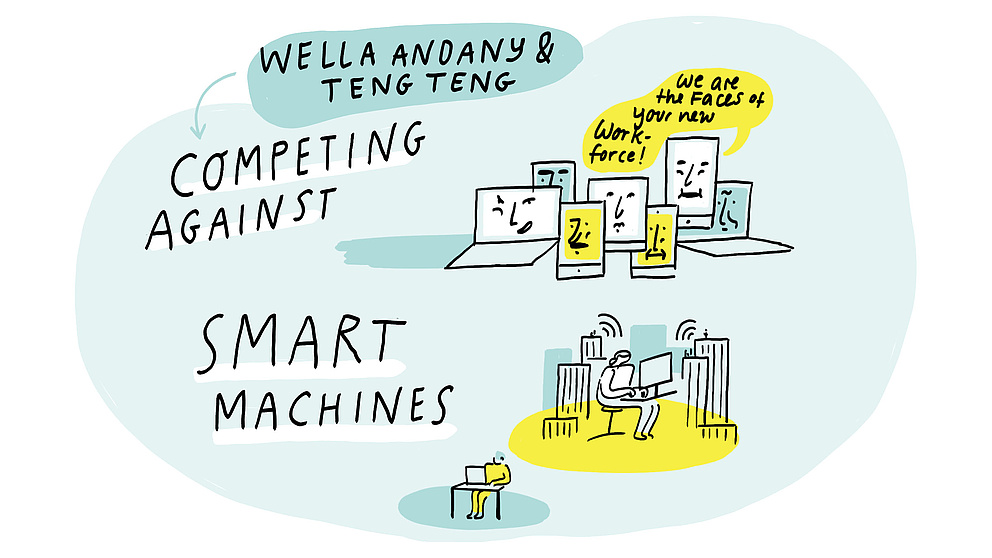
What will the future of work in our “smart new world” look like? What are the fears and concerns of workers who are increasingly confronted with the presence of machines in their lives? In their multimedia feature, Teng Teng, expert in organizational development and technology, and journalist Wella Andany explore the impact of new technologies on workers in Indonesia and offer an insightful analysis on the challenges they face in adapting to automation and digitalisation. By interweaving scientific expertise, infographics and visuals, the piece draws a complex and compelling picture of a workforce that is not yet equipped to transition into a new decade. The feature raises important questions of how to build competencies and integrate technology in an already extremely competitive job market. Personal stories and the expertise of researchers such as Teng Teng, politicians and stakeholders are well balanced and offer a critical yet constructive perspective. The piece invites the reader to take on a global perspective as the situation of workers worldwide is at stake when we venture into a new, hopefully human-centred smart world.
Alexandra Eul and Priya Goswami for their article series “Technology will (not) fix this“
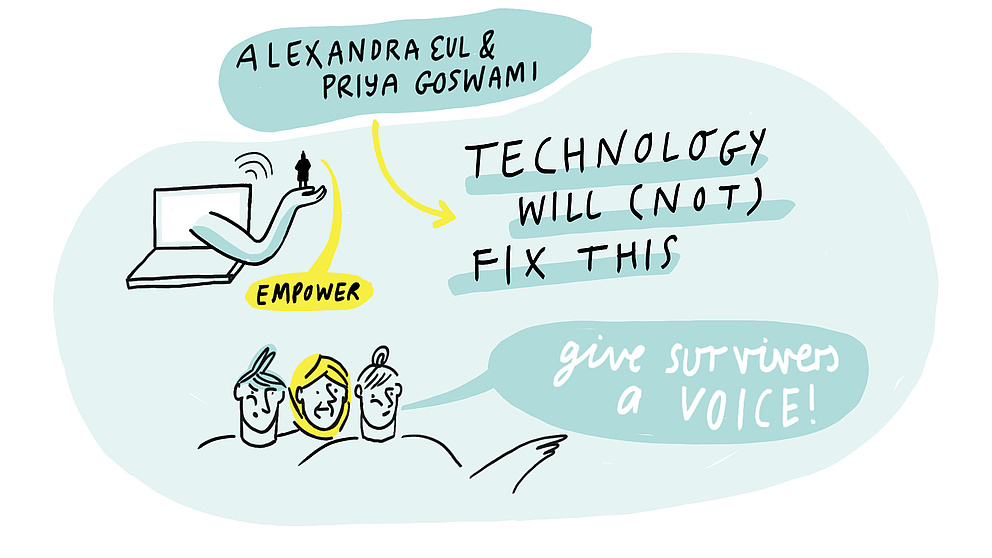
When we talk about innovation in AI-driven research and applications the consideration of ethical implications and effects on different social groups still leaves room for improvement. Especially the needs and concerns of women are often neglected, as social activist and entrepreneur Priya Goswami and journalist Alexandra Eul argue in their heartfelt pledge for a change of perspective in tech development. In their three-part article series about women visionaries who are employing technologies, including AI, to combat gender-based violence they remind us that the promises of innovative tech can only be fulfilled if the realities of women worldwide are integrated into the research, design and application of smart technologies. Departing from a very personal take on Priya Goswami’s journey from filmmaker to app developer, journalist Alexandra Eul explores different positions in research, non-profit and social entrepreneurship in their fight against gender injustice. Goswami’s App “Mumkin”, a chatbot-based, AI-driven app that helps survivors to cope with their experience and “loss of language”, serves as a starting point for a global perspective on solidarity among women and a fair representation in the development and distribution of smart technologies.
One part was published in the July 2022 edition of EMMA: “Hilfe aus dem Handy” EMMA, July 2022, p. 54.
Fabian Franke and Dr. Robert Siddall with their project “Build Nature from Scratch” and the “Natural Robotics Contest“
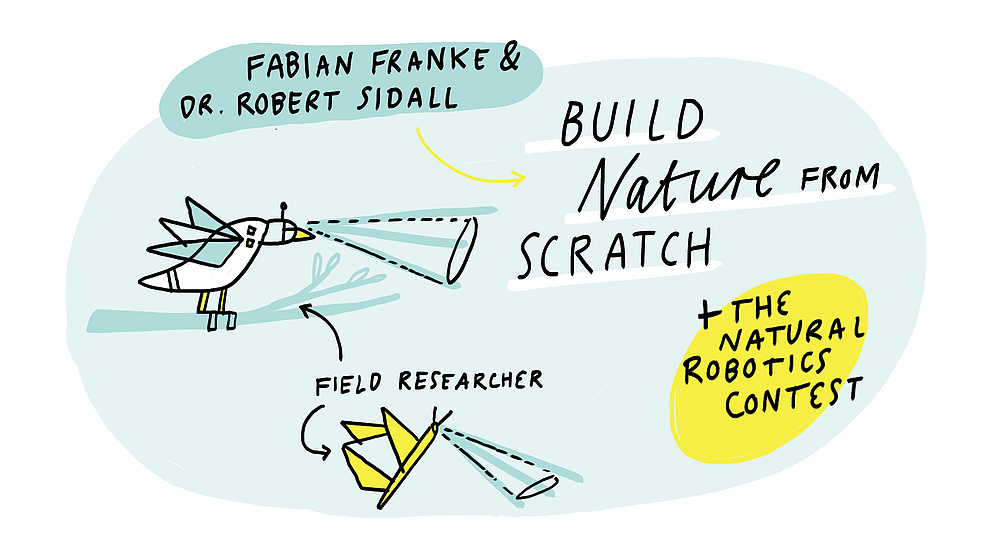
While field research often sounds exciting and glamorous, collecting data in nature can be tedious and requires a lot of patience. Robert Siddall, robotics engineer at the University of Surrey, will make life easier for his colleagues. Siddall’s technical replications of nature, e.g. robotic reptiles, transform the way researchers navigate and monitor ecosystems in the future. Journalist Fabian Franke will follow Robert Siddall’s journey from the lab into the wild in an article that portrays a scientist at work through compelling images. The report is flanked by an interactive, social-media-based citizen science approach that will be particularly appealing to a younger audience. Robert Siddall and his colleagues will launch a design contest where high school students and the broad public can submit a design for a robot inspired by nature that will then be turned into a real, working robot – a robot that will help us understand our shared environments. The combination of article and contest present scientists and scientific methods as tangible and relatable. And, most importantly, the tandem shows that science can be a lot of fun.

